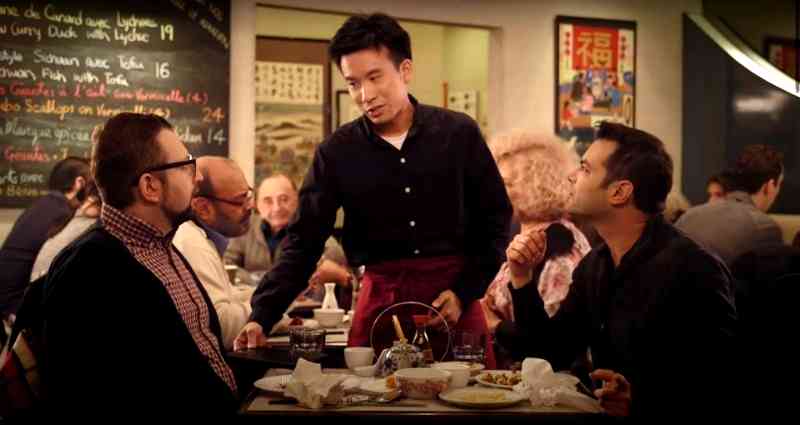Why Jewish People Eat Chinese Food on Christmas


By Ryan General
December 7, 2016
Feasting on Chinese food has become customary for a lot of Jewish people in America during Christmas, and many may still be wondering why.
Aside from the obvious points that Jews celebrate Hanukkah, not Christmas, that they don’t enjoy “Christmas Hams” because they can’t eat pork, and that Chinese restaurants are typically one of the only places open on Christmas day, there’s something more about the relationship between the two immigrant cultures that grew together over time, according to The Atlantic.
According to “The Search for General Tso” producer Jennifer Lee, at the turn of the century, “Jews and Chinese were the two largest non-Christian immigrant groups.”
It’s actually more than just simply having Chinese restaurants open during the holidays. Over the years, the two groups have developed a link, sharing how they are “outsiders” in local traditions for several generations. She pointed out that Jews eating Chinese food during the holidays “reveals a lot about immigration history and what it’s like to be outsiders.”
From 1899 to 1910, the Jewish population in New York City saw a surge in growth from 400,000 to almost a million, which then accounted for 25% of the city’s total population. For many Jews, Chinese restaurants have provided a sense of acceptance while assimilating their culture in the American way of life.
Also, Chinese dishes are seen as an easy transition from Kosher food, as Chinese restaurant owner Ed Schoenfeld explained.
“Chinese restaurants were the easiest place to trick yourself into thinking you were eating Kosher food,” Schoenfeld, the owner of New York’s famed RedFarm restaurant said.
In Jewish law, mixing meat with milk is strictly not allowed, which suits up perfectly with how the Chinese traditionally keep their food dairy-free.
“If you look at the two other main ethnic cuisines in America, which are Italian and Mexican, both of those combine milk and meat to a significant extent,” Lee explained. “Chinese food allowed Jews to eat foreign cuisines in a safe way.”
Chinese restaurants in Chinatown and other parts of the city have, in some way, provided a sense of religious accordance without dishes containing pork and shellfish. Over the years, Jewish Christmas has grown and developed into a national ritual on its own.
“Clearly this whole thing with Chinese food and Jewish people has evolved,” Schoenfeld said. “There’s no question. Christmas was always a good day for Chinese restaurants, but in recent years, it’s become the ultimate day of business.”
It is also worth noting that Chinese food found in America, which has been criticized by food purists as “not authentic”, has thrived for its ability to adapt across cultures. Such adaptability is shared by the Jewish community, whose rituals, practiced in exile, have evolved accordingly.
Lee believes that Chinese food is somehow a representation of Jewish life in America. “I would argue that Chinese food is the ethnic cuisine of American Jews. That, in fact, they identify with it more than they do gefilte fish or all kinds of the Eastern Europe dishes of yore.”
Share this Article
Share this Article